This post summarizes comments made at an event hosted by Brookings on May 28, 2024. Quotes have been edited for clarity.
In May 2024, Brookings’ Economic Studies and Foreign Policy programs published a series of policy briefs and convened an event on Western nations’ actions against Russia. Deputy National Security Advisor for International Economics Daleep Singh joined the event for a keynote and Q&A, followed by an expert panel discussion. Read highlights of the Q&A with Singh and the panel discussion below.
Are the sanctions against Russia working?
In his keynote, Singh noted that one of the myths about the current sanctions against Russia is that they have “failed” because they haven’t reversed Russia’s actions, when in fact that was never a stated objective of the sanctions. He elaborated on this point in the Q&A, saying that the sanctions were only one tool in the current strategy and that they were designed with global impacts in mind. “It would feel good to have maximal economic shock and awe all the time, spillover effects and secondary consequences be damned,” Singh said, “but that wouldn’t be the best long-term, risk-adjusted strategy for unity, and it wasn’t sustainable.” As to whether he believed the impact of the sanctions would alter Putin’s calculus to continue the war, Singh said sanctions are “probably a distant second” consideration for Putin when compared with the capture of territory. However, relative to the stated objectives of raising the cost of the war for Russia and giving Ukraine strategic leverage, Singh felt the sanctions were doing their job.
[Putin] wants to basically beat Ukrainians and Europeans and Americans into submission, either literally on the battlefield or in the field of political propaganda.
Fiona Hill, Senior Fellow, Brookings Foreign Policy program
Singh’s point about Putin’s objectives was echoed by the panel. Fiona Hill, senior fellow in Brookings’ Foreign Policy program, said that “Putin’s number one objective is to conquer territory,” a distinct shift from his priorities earlier in his tenure as Russia’s leader which were more focused on improving the overall prosperity of his country. Yuriy Gorodnichenko of Berkeley noted that the larger objective of ending Russian aggression in Ukraine would require inflicting significant economic damage on the Russian economy, something to the extent of the collapse of energy prices in the 1980s that led to the Soviet Union’s collapse.
But again, echoing Singh’s discussion of the political economy of such extreme measures, Agathe Demarais of the European Council on Foreign Relations explained how a collapse of the Russian economy, the ninth largest in the world and a major commodity producer and exporter, would have ripple effects. Demarais agreed with Singh that the sanctions are having their intended effect, highlighting several specific aspects: They have demonstrated and reinforced transatlantic unity; there have been limited ripple effects on emerging economies; and they’ve reduced Russian oil revenues.
Will the U.S. expand its sanctions regime?
Russia has adapted to sanctions, circumventing Western measures like the oil price cap. “We’ve got to match every circumvention with a countermeasure,” Singh said. Following on this point in response to a question from the audience, Singh noted that Russia is “transforming its economy entirely into a factory for the war machine,” and thus tariffs, export controls, or an embargo on Russian goods is becoming the only direction for enhanced measures to move. These steps would require American companies to adapt as well, said Singh: “It took decades to build the financial sanctions architecture after 9/11 – we’ve got to do that at warp speed for technology and goods companies.”
The panel emphasized the importance of messaging in the current and future actions, an area that Demarais noted had been a shortcoming of the current sanctions regime, exhibited by the high polling of pro-Russian parties in European elections. Hill agreed that a goal of Russian propaganda was to convince the Western world that the sanctions aren’t working and that the goal of the West should be to remain unified and adaptable. “He wants to basically beat Ukrainians and Europeans and Americans into submission, either literally on the battlefield or in the field of political propaganda,” said Hill. “So, we have to keep on stepping up our game.”
Gorodnichenko cited recent and historical examples that suggest additional sanctions against Russia may not have the dire ripple effects noted by Singh and Demarais: The embargo on Iranian oil in the early 2010s did not lead to a dramatic spike in energy prices, he explained, and in 2022, the cutoff of Russian energy to Europe did not spark mass unemployment as many predicted. Based on comments made by Singh, Gorodnichenko said he does expect secondary sanctions, whether in the financial or technology sectors or both. “When you issue threats and nothing is happening, then nobody is reacting to the threats. You have to make these threats real,” he said.
What are the broader impacts of Russian sanctions, in the U.S. and around the world?
Over the course of the event, participants touched on broader consequences of the Russian sanctions. “This war has become a proxy war against the United States,” said Hill. “Putin is emboldened by the fact that he thinks that everybody else is able to exercise their frustration with the United States through the war in Ukraine.”
We’ve got to match every circumvention with a countermeasure.
Daleep Singh, Deputy National Security Advisor for International Economics
Demarais highlighted concerns about countries led by China establishing “sanction proof mechanisms” in response to the West’s actions. These include alternatives to Western financial tools through digitalization and the creation of an alternative to the SWIFT interbank transaction system. The developments represent a “terrifying prospect” said Demarais: Sanctions becoming ineffective would be a lost foreign policy tool and a national security risk due to inability to track financial transactions of terror groups, for example, she said.
This linked to a thread earlier in the conversation, when Singh discussed a long-term view of establishing a doctrine of economic statecraft with a preference for tools “that offer the prospect of mutual economic gain,” tools like debt relief or infrastructure finance. “These are the kind of tools that each have, I would argue, the potential to forge a more enduring alignment with countries that are skeptical of our use of economic statecraft.” However, he noted, this administration’s ability to define such a doctrine may be time limited, depending on the November election.
-
Acknowledgements and disclosures
The Brookings Institution is financed through the support of a diverse array of foundations, corporations, governments, individuals, as well as an endowment. A list of donors can be found in our annual reports published online here. The findings, interpretations, and conclusions in this report are solely those of its author(s) and are not influenced by any donation.
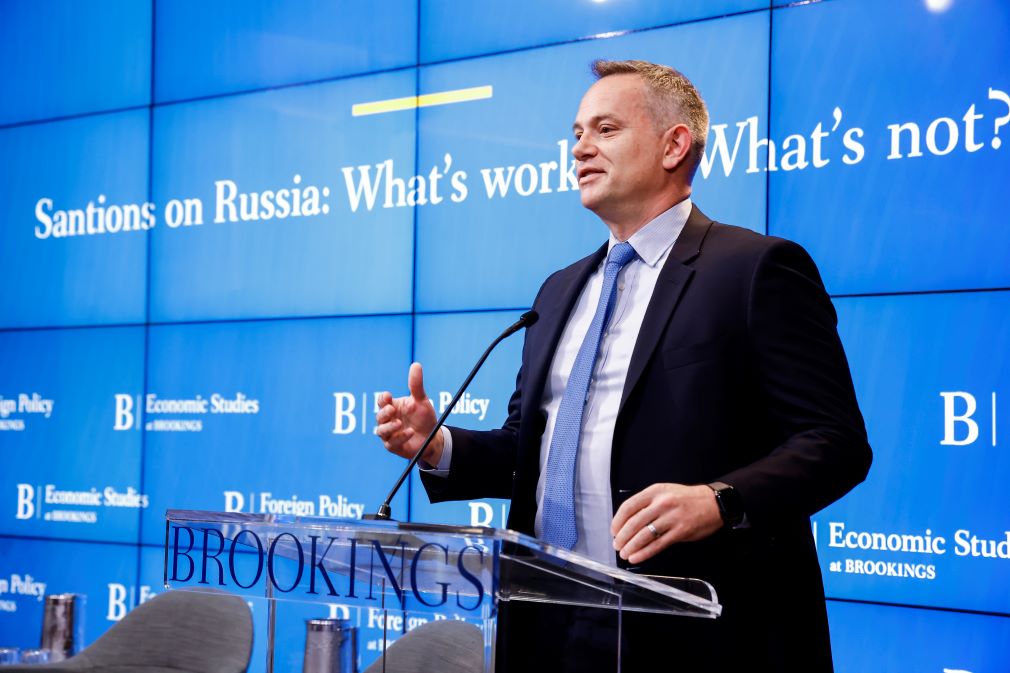
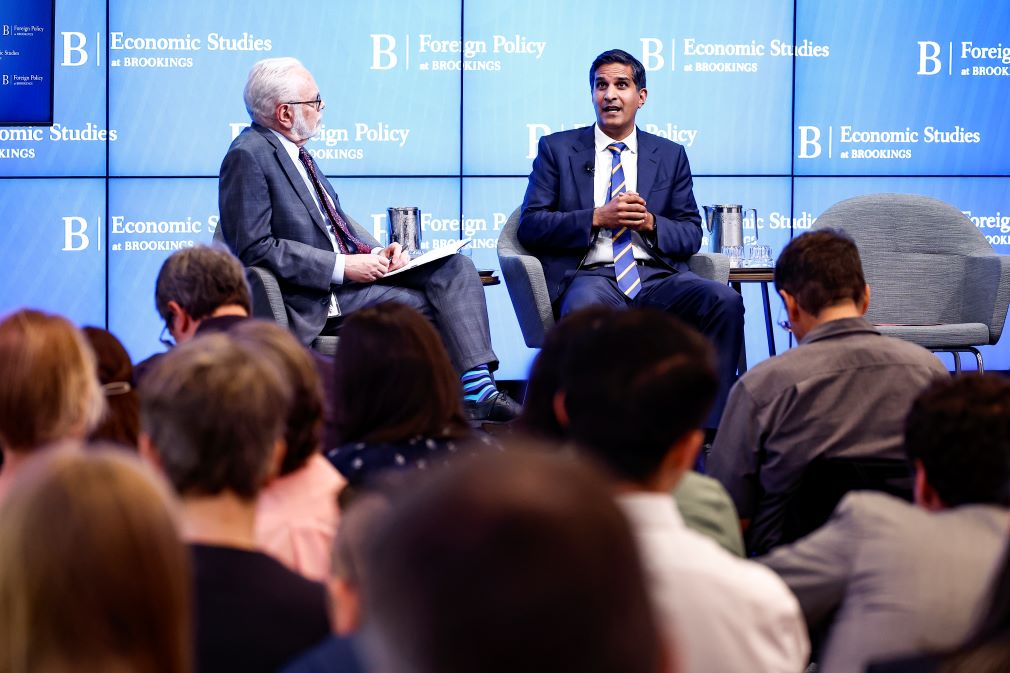
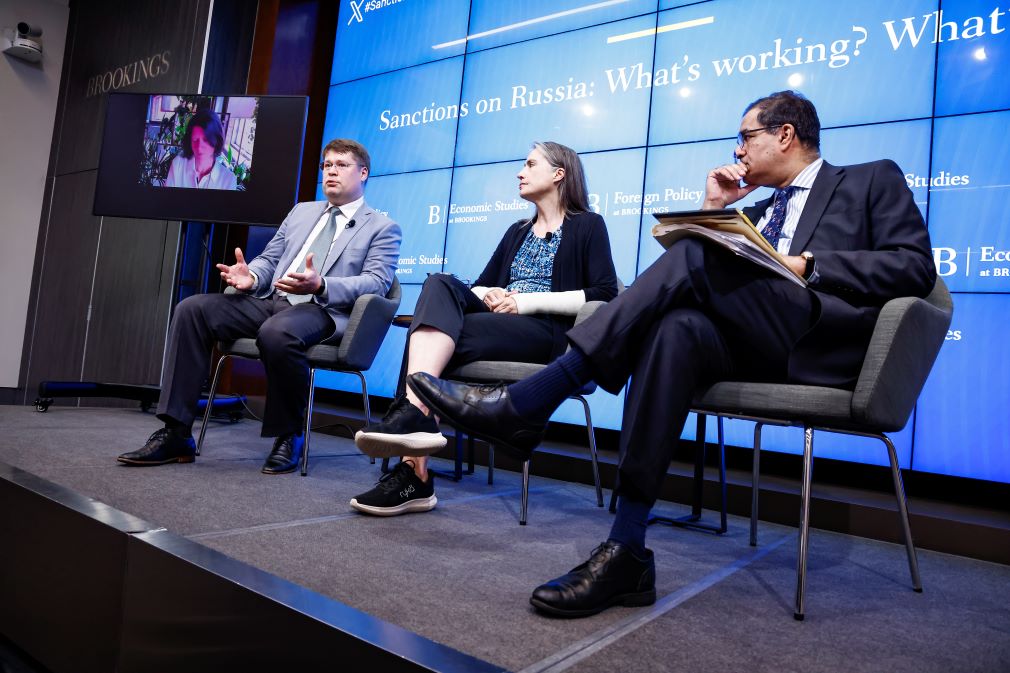
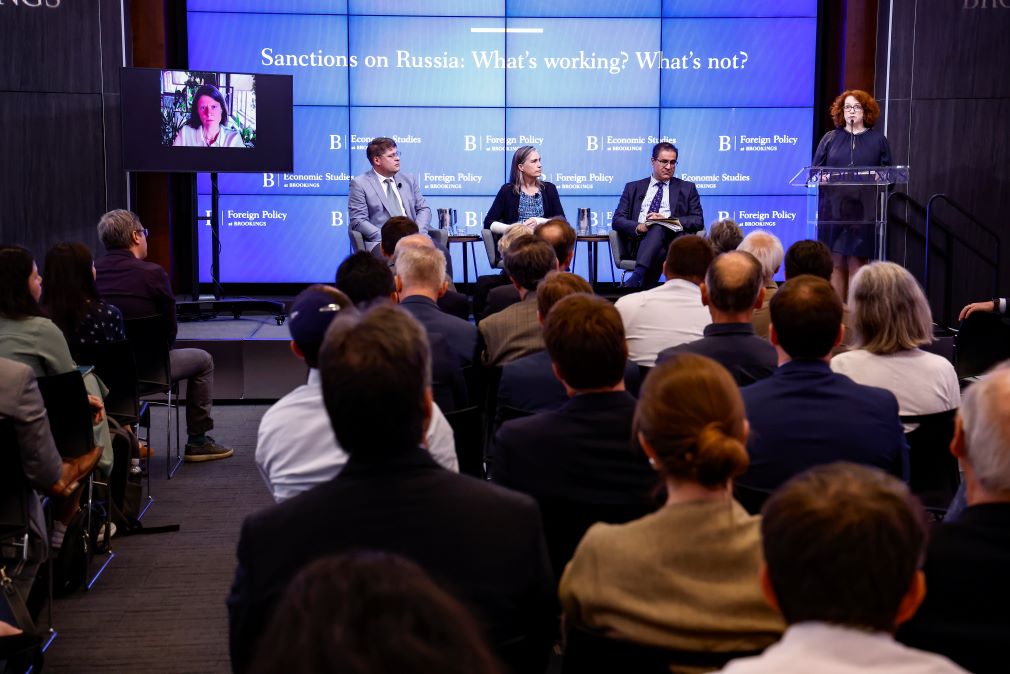
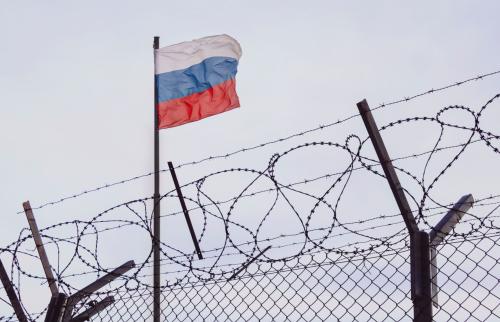
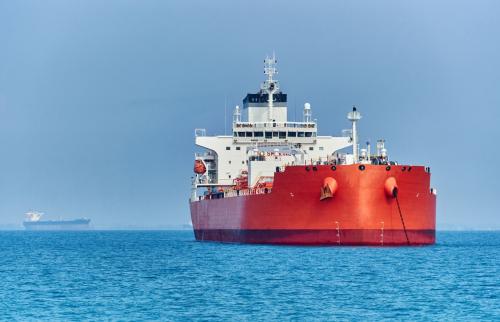
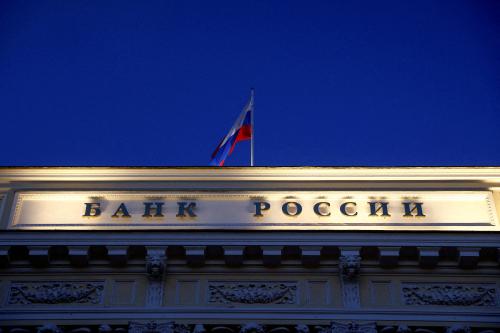


Commentary
How are sanctions against Russia affecting the war in Ukraine?
Highlights from an expert discussion of the US sanctions regime
July 10, 2024